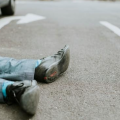A lot of people don’t fully understand exactly what an accident settlement should cover. And that’s important because the goal of a personal injury settlement isn’t to just throw a random number at you.
The whole point is to put you back in the position you would have been in if the accident never happened. That’s what the law says.
And to do that right, you have to include all your losses. Not just the injury itself, but every way the injury has messed with your life and your wallet.
These losses are called special damages. These are actual, specific financial losses, stuff you can prove with receipts, payslips, invoices, and doctor’s notes. Severe injuries could lead to settlements that are much higher, simply because the impact on your income, your medical bills, and your daily life is so much greater.
And when you’re building your case, every single one of those losses matters.
Here is a wide range of such losses that must be included in your PI settlement:
Table of Contents
Loss of Earnings

If your injuries forced you to take time off work, that’s a loss you’re entitled to claim. But to claim it, you need to show proof. If you’re employed, that means getting your wage slips from before the accident and after, plus a letter from your boss confirming you were off because of your injury.
If you’re self-employed, it’s a bit more work. You’ll need tax returns and financial records for at least three years before the accident and for the time you couldn’t work. That’s how they figure out what you should have been making.
And if your injury is serious enough that you can’t return to work, or you have to retire earlier than planned, that loss can stretch into the future. That’s called future loss of earnings, and you can claim that too. If your injury is permanent, the calculation might go all the way to retirement age.
There’s also pension loss to think about. If you or your employer stopped paying into your pension while you were out of work, that’s going to hurt your future income when you retire. So that also needs to be included.
Medical Treatment
Injuries often mean medical bills. And in many cases, especially if you go private, they aren’t cheap. Physiotherapy, counseling, and chiropractic care cost an arm and a leg. If a medical expert agrees that the treatment was necessary and reasonable, then the cost can be included in your claim.
You’ll need to show invoices or receipts. If you haven’t started treatment yet but your doctor has recommended it, you can use a quote or estimate. And if a private health insurance company covered your treatment, they might want to get that money back, and that can be added to your claim.
Care and Assistance
If your injury meant you couldn’t take care of yourself like before, maybe you couldn’t cook, clean, bathe, or even get dressed, then someone had to help you. Maybe a friend or family member stepped in. Or maybe you had to hire a professional caregiver.
You can claim for both types of help, both paid and unpaid. But again, you’ll need evidence. That could be medical records showing you needed care, plus receipts if you paid someone. If it was a friend or relative helping you, they can write a statement about what they did and how much time they spent helping you.
Special Equipment and Mobility Aids
Things like wheelchairs, walking sticks, braces, or specially adapted furniture are the essential tools you’ll need for recovery or just living your life again after a serious injury. As long as a medical expert says the equipment is reasonable and necessary, it can be included in your claim.
Damaged Items or Clothing
If your clothes were ruined or if your phone or bike got smashed, that’s another financial loss. You can claim the cost of repair or replacement. But again, you need proof. Take pictures, and if you have the original purchase receipt or an estimate for replacement, that helps a lot.
Just know that if something was already pretty old when it got damaged, they might deduct a bit for wear and tear.
Vehicle Repairs or Replacement Costs
If it were a car accident, your vehicle probably got damaged. Usually, this is something your car insurance handles, but there’s often an excess fee, i.e., the part you have to pay out of pocket. That’s a cost you can include in your claim, too.
So if you had to pay anything to repair or replace your vehicle, let your lawyer know.
Missed Trips or Holidays
If you had a holiday or trip planned that you had to cancel because of your injuries, you might be able to claim that back. If you didn’t get a refund, you can claim the full cost. If you did get a partial refund but lost a deposit or had to pay a cancellation fee, that loss can be included too.
























